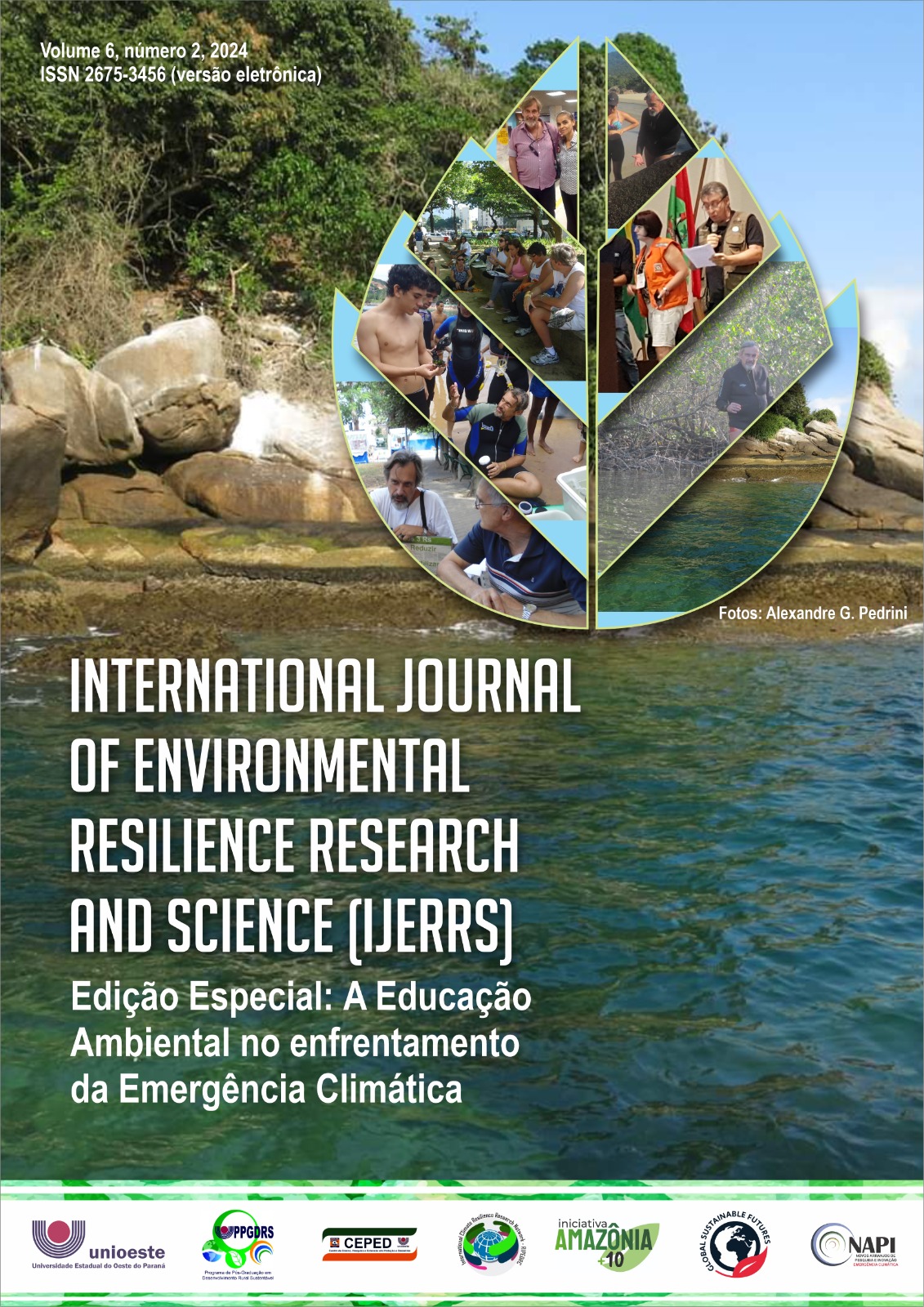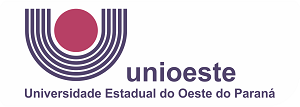Environmental Education in the face of the Climate Emergency: a proposal for didactical guide for an interpretive trail
DOI:
https://doi.org/10.48075/ijerrs.v6i2.33519Abstract
Abstract: The state of Climate Emergency negatively affects the entire planet, especially countries that are environmentally weakened by the rich people who cause it and oppress them economically and socially. This climate injustice must be faced and resolved and critical environmental education has a rich theoretical-practical arsenal to solve this problem. The broad and urgent training of teachers in critical environmental education is foreseen in national public policies to face socio-environmental problems such as global climate change of anthropogenic origin that leads to a state of Climate Emergency. The present work contributes to this context, presenting a teaching guide supported by teaching material for application on the Whale trail in the Taquara Municipal Natural Park in the municipality of Duque de Caxias, state of Rio de Janeiro, Brazil. The teaching guide is associated with Biology content that was formulated based on a previously published theoretical model of critical environmental education to be taught at nine interpretative points on an interpretative trail with the help of the STRAVA application. This didactic guide was formulated to be applied in conjunction with the lecture, thus composing the extra-class critical environmental education class to be applied on the interpretative trail. The class included in its program content: a) the sensorial interaction of the participants with the local context; b) biodiversity identified taxonomically and with the common name of the Atlantic Forest biome; c) human diversity with its culture; d) causes and consequences of the Climate Emergency and the local problems associated with it. Its quantitative content assessment is carried out through pre/post-test questionnaires. Each extra-class critical environmental education class taught to combat the Climate Emergency is associated with its respective competencies and skills from the National Common Curricular Base. In conclusion, the basis of the didactic guide for extracurricular critical environmental education classes for interpretative trails with nine interpretative points to address global climate change of anthropogenic origin that causes the state of Climate Emergency is available for use on the Whale trail of the Municipal Natural Park da Taquara in Duque de Caxias in the state of Rio de Janeiro, Brazil.
Key words: Practical field class. Climate change. Basic education. Formal education. Didactic script.
Downloads
Published
How to Cite
Issue
Section
License
Copyright (c) 2024 International Journal of Environmental Resilience Research and Science

This work is licensed under a Creative Commons Attribution-NonCommercial-ShareAlike 4.0 International License.
Aviso de Direito Autoral Creative Commons
Política para Periódicos de Acesso Livre
Autores que publicam nesta revista concordam com os seguintes termos:
1. Autores mantém os direitos autorais e concedem à revista o direito de primeira publicação, com o trabalho simultaneamente licenciado sob a Licença Creative Commons Attribution que permite o compartilhamento do trabalho com reconhecimento da autoria e publicação inicial nesta revista.2. Autores têm autorização para assumir contratos adicionais separadamente, para distribuição não-exclusiva da versão do trabalho publicada nesta revista (ex.: publicar em repositório institucional ou como capítulo de livro), com reconhecimento de autoria e publicação inicial nesta revista.
3. Autores têm permissão e são estimulados a publicar e distribuir seu trabalho online (ex.: em repositórios institucionais ou na sua página pessoal) a qualquer ponto antes ou durante o processo editorial, já que isso pode gerar alterações produtivas, bem como aumentar o impacto e a citação do trabalho publicado (Veja O Efeito do Acesso Livre).
Licença Creative Commons
Esta obra está licenciada com uma Licença Creative Commons Atribuição-NãoComercial-CompartilhaIgual 4.0 Internacional, o que permite compartilhar, copiar, distribuir, exibir, reproduzir, a totalidade ou partes desde que não tenha objetivo comercial e sejam citados os autores e a fonte.









